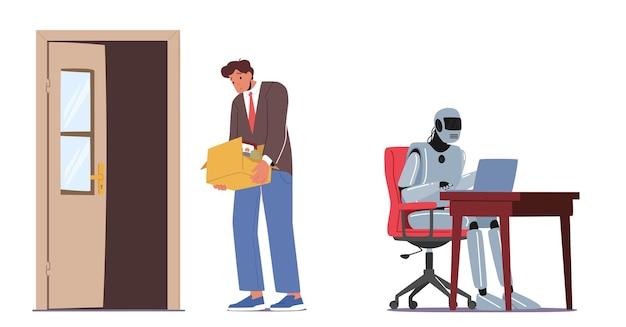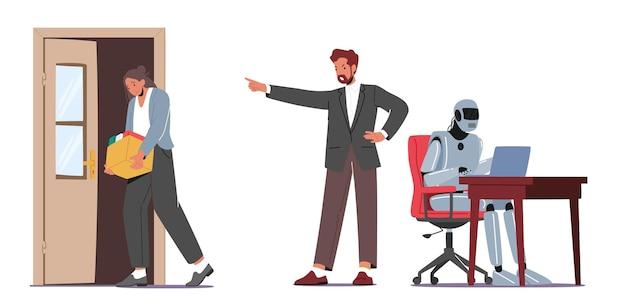Technology has rapidly advanced in recent years, transforming various aspects of our lives. From smartphones to AI assistants, automation has become increasingly prevalent. In the field of education, the idea of replacing teachers with robots or automated systems has generated considerable debate. While it is true that technology can enhance the learning experience in many ways, completely replacing human educators with machines is a concept that should be approached with caution.
In this blog post, we will delve into the story of Margie, a young student in the 2023 educational system, and her encounters with a mechanical teacher. We will explore the advantages and disadvantages of this technology, and the potential implications of robotic instructors in the classroom. By examining Margie’s experiences, we will shed light on why robots should not replace teachers, and the unique qualities that human educators bring to the table.
So, sit back, relax, and let’s delve into the fascinating world of education, technology, and the age-old question of whether robots can truly replace teachers.

Why robots should not replace teachers
The Human Touch That Robots Can’t Match
When it comes to education, there’s something magical about the connection between a teacher and their students. It’s that intangible human touch that robots simply can’t replicate. Sure, robots may be able to convey information and answer specific questions, but they lack the ability to empathize, understand the unique needs of each student, and provide the emotional support that only a real human teacher can offer.
Building Relationships and Fostering Collaboration
One of the most important aspects of education is building relationships and fostering collaboration among students. Teachers have the ability to create a sense of community and teamwork in the classroom that robots can never achieve. From group projects to class discussions, the dynamic interactions and the diverse perspectives brought by students can only be fully harnessed through human-led instruction. Let’s face it, robots can’t match the witty banter and lively debates that arise in a classroom full of curious young minds.
Nurturing Creativity and Critical Thinking
Creativity and critical thinking are essential skills for the future. While robots excel at providing information, they lack the ability to inspire creativity and encourage innovative thinking. Teachers have the power to ignite the spark of imagination and help students develop their unique talents. From art projects to writing assignments, teachers foster an environment that allows students to think outside the box, explore their passions, and challenge conventional wisdom.
Adapting to Individual Learning Styles
Every student is unique in their learning style and capabilities. Teachers possess the incredible skill of adapting their teaching methods to suit the individual needs of each student. Whether it’s providing extra support to struggling students or challenging advanced learners, teachers have the experience and intuition to understand what works best for each individual. Robots, on the other hand, are limited by their programmed algorithms and may not be flexible enough to cater to the diverse needs of a classroom full of students.
Teaching Life Skills Beyond the Curriculum
Education is not just about textbooks and exams; it’s about preparing students for life. Teachers play a vital role in imparting life skills such as empathy, resilience, teamwork, and problem-solving abilities. These are skills that cannot be taught through a screen or a robot. Teachers serve as role models, mentors, and guides, helping students navigate the complexities of the world and become well-rounded individuals.
Embracing the Future while Preserving Human Touch
While technology and innovation have their place in the classrooms of the future, it’s important to remember that robots should complement, not replace, teachers. The human touch, the emotional connection, and the tailored approach that teachers bring to education are irreplaceable. Let’s embrace the future with open arms, but let’s also recognize the immense value that human teachers bring to the lives of students. So, next time you consider replacing teachers with robots, remember the unique qualities that make our human educators truly exceptional!

FAQ: Why Robots Should Not Replace Teachers
In this FAQ-style blog post, we will delve into the highly debated question of whether robots should replace teachers. Education is a vital aspect of society, and while technology has rapidly advanced, we must consider the potential drawbacks of relying solely on robots in the classroom. Let’s explore some intriguing questions regarding this topic and uncover the advantages and disadvantages of mechanical teachers.
Why Did Margie Find the Old School So Interesting
Margie, a curious schoolgirl who lived in the futuristic world of 2157, found the old school fascinating because it was completely different from the automated virtual learning environment she was accustomed to. The old school had real books, human teachers, and interactive group activities that allowed for social interactions—a far cry from the impersonal nature of her mechanical teacher.
Can a Teacher Be Replaced by Technology
While technology has undoubtedly reshaped the educational landscape, completely replacing human teachers with robots poses certain challenges. Teachers bring a wealth of experience, empathy, and adaptability that is difficult for machines to replicate. The role of a teacher extends beyond imparting knowledge; they inspire and guide students, fostering critical thinking and emotional development in ways no machine can.
What Did Margie Hate Most
Margie despised the mechanical teachers’ lack of understanding and personalized approach. These robotic educators failed to empathize with students’ individual learning styles, resulting in a one-size-fits-all teaching approach. Margie craved genuine human interaction, something technology struggled to provide fully.
What Problem Did Tommy Encounter with His Mechanical Teacher
Tommy faced a peculiar dilemma with his mechanical teacher. One day, it encountered a programming glitch, forcing Tommy to read aloud from a book. The mechanical teacher, unable to comprehend the retro method, repeatedly interrupted, highlighting the limitations of technology when confronted with unconventional situations.
What Are the Advantages and Disadvantages of Mechanical Teachers
Advantages of mechanical teachers include their ability to deliver information in a standardized manner, ensuring consistent quality of education. Additionally, technology can provide access to a vast array of resources, promoting independent learning. However, drawbacks include the impersonal nature of the learning experience, limited adaptability to individual students’ needs, and the absence of human guidance and emotional connection.
Why Robots Should Not Replace Teachers
Robots should not replace teachers because they lack the capacity for interpersonal skills, empathy, and adapting to the unique needs of each student. Teachers offer personalized support, motivation, and encouragement, fostering a positive learning environment. Moreover, human teachers serve as role models, imparting life skills and values that extend beyond academic knowledge.
Which School Did Margie Like
Margie preferred the old school with human teachers, physical books, and social interactions. Compared to the sterile environment of virtual classrooms and mechanical teachers, the old school provided warmth, authenticity, and the opportunity for genuine connections with both teachers and classmates.
What Did the County Inspector Give Margie
The county inspector gifted Margie an antique mechanical book. It was a physical book with printed pages—a relic in 2157. This thoughtful gift highlighted the inspector’s recognition of Margie’s desire for a more tangible, traditional form of education that deviated from the technology-dominated norm.
Why Did Margie Fail Better
Margie’s mechanical teacher, being a machine, couldn’t comprehend the concept of “failing better.” The phrase “failing better” implies the notion of learning from one’s mistakes and using them as stepping stones for improvement. Mechanical teachers lack the emotional intelligence to guide students through such abstract ideas, emphasizing the necessity of human teachers.
Is Computer Better Than Teacher
While computers have undoubtedly transformed education, they can never surpass human teachers’ capabilities. Computers excel in information dissemination, data analysis, and interactive learning tools, but they cannot replace a teacher’s expertise, adaptability, and mentorship. Teaching is a multidimensional profession where human connection and guidance thrive.
Can We Replace Teachers with Computers? Advantages and Disadvantages
Replacing teachers with computers poses advantages such as scalability, increased access to resources, and efficient information delivery. However, disadvantages include the isolation of students, the absence of emotional support, limited adaptability to individual needs, and the potential loss of valuable human interaction that shapes students holistically.
Are Teachers Better Than Robots
The answer lies in the unique qualities teachers possess. Teachers act as motivators, mentors, and life guides, instilling values, empathy, and critical thinking. They foster social and emotional growth, creating engaging learning environments. While robots can offer certain benefits in education, the role of a teacher is multifaceted and far transcends the capabilities of technological counterparts.
While technology continues to revolutionize education, we must approach the question of replacing teachers with robots with caution. Margie’s longing for a traditional school experience serves as a reminder of the indispensable human element in teaching. Let us embrace innovation while cherishing the extraordinary qualities that teachers bring to the classroom.
